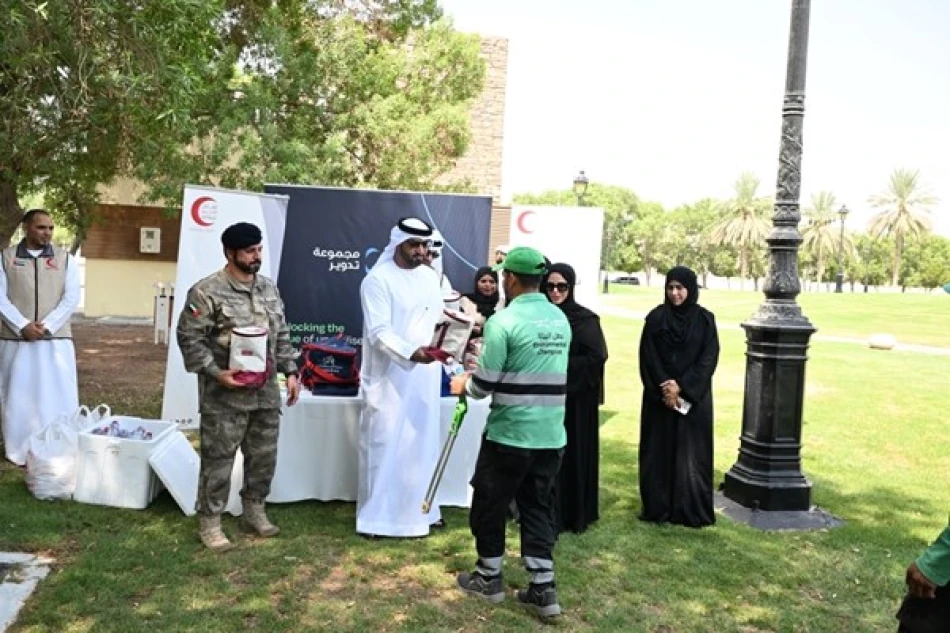
Red Crescent Launches 'We're Grateful' Initiative to Support Workers in Al Ain
UAE Red Crescent Launches Worker Support Initiative as Gulf States Prioritize Labor Welfare
The UAE Red Crescent's Al Ain center has launched the "We Are Grateful" initiative, distributing essential supplies to workers in Al Tawiya Park to help them cope with extreme summer heat. The program, executed in partnership with Abu Dhabi Police, Al Ain Municipality, and Tadweer Group, reflects the UAE's broader strategy to enhance labor conditions and social responsibility amid growing international scrutiny of Gulf worker welfare standards.
Strategic Partnership Addresses Summer Heat Challenges
The multi-agency collaboration distributed bags containing essential items designed to alleviate harsh working conditions during the UAE's punishing summer months, when temperatures regularly exceed 45°C (113°F). Dr. Ahmed Obaid Al Dhaheri, Director of the UAE Red Crescent Center in Al Ain, emphasized that the initiative aims to support workers while reinforcing humanitarian values within Emirati society.
The program's timing is particularly significant as the UAE enters its peak summer period, when outdoor work becomes increasingly dangerous. The initiative demonstrates how government agencies, municipalities, and private sector partners like Tadweer Group are coordinating efforts to address worker welfare systematically rather than through ad-hoc measures.
Broader Context: Gulf Labor Reform Movement
Regional Competition for Reputation
This initiative positions the UAE alongside regional competitors like Saudi Arabia and Qatar, which have implemented substantial labor reforms in recent years. Qatar's dismantling of the kafala system and Saudi Arabia's labor mobility reforms have created pressure on other Gulf states to demonstrate similar commitments to worker welfare.
The UAE's approach differs by emphasizing public-private partnerships and civil society engagement, rather than purely regulatory changes. This strategy allows for more flexible implementation while building broader social support for worker welfare initiatives.
Economic Implications
For investors and businesses operating in the UAE, such initiatives signal a maturing approach to corporate social responsibility that could influence future regulatory frameworks. Companies may need to factor enhanced worker welfare standards into operational costs and planning, particularly in construction, logistics, and outdoor services sectors.
The involvement of Tadweer Group, a waste management company, suggests that private sector participation in worker welfare programs may become an expected component of business operations, potentially influencing contract awards and business licensing processes.
Long-term Significance for UAE's Development Model
The "We Are Grateful" initiative reflects the UAE's evolution from a purely economic development model to one that incorporates social sustainability. This shift becomes crucial as the country seeks to attract international investment and talent while maintaining its reputation as a stable, progressive Gulf state.
Unlike previous charitable efforts that were often seasonal or ceremonial, this program's institutional backing suggests a more systematic approach to worker welfare that could expand beyond Al Ain to other emirates. The positive worker response mentioned by Al Dhaheri indicates genuine impact rather than mere public relations, which could encourage broader adoption of similar programs.
As Gulf states compete for economic diversification and international standing, worker welfare initiatives like this may become standard practice rather than exceptional gestures, fundamentally reshaping labor relations across the region.
Most Viewed News

 Layla Al Mansoori
Layla Al Mansoori






